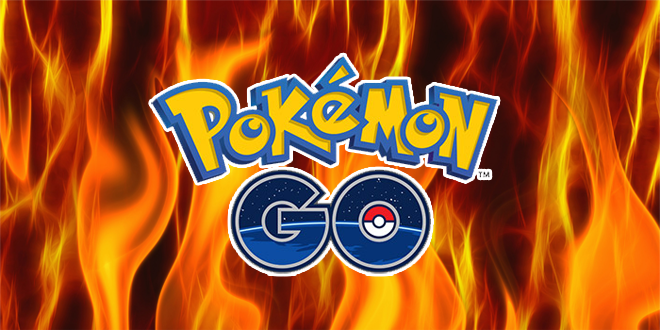Pokemon GO is the most popular thing out right now, if you have somehow managed to avoid it for the past week. The safety and risks associated have been a hot button topic, and just like with any popular app, there are concerns about privacy and how their information is used. Shortly after release, Niantic had to fix an error that they had with the OAuth Token that gave them more permission than was needed, or, according to Niantic, intended. But apparently there is more for players to be concerned about, and this is definitely not a mistake. Within the Terms of Service for Pokemon GO, Niantic has included a forced arbitration clause. Essentially, unless users opt out or in certain circumstances, players agree to not be a part of class action lawsuits against Niantic and surrender their right to a trial by jury or judge in a court of law.
ARBITRATION NOTICE: EXCEPT IF YOU OPT OUT AND EXCEPT FOR CERTAIN TYPES OF DISPUTES DESCRIBED IN THE “AGREEMENT TO ARBITRATE” SECTION BELOW, YOU AGREE THAT DISPUTES BETWEEN YOU AND NIANTIC WILL BE RESOLVED BY BINDING, INDIVIDUAL ARBITRATION, AND YOU ARE WAIVING YOUR RIGHT TO A TRIAL BY JURY OR TO PARTICIPATE AS A PLAINTIFF OR CLASS MEMBER IN ANY PURPORTED CLASS ACTION OR REPRESENTATIVE PROCEEDING.
The clause is only for Pokemon GO. Niantic's Terms of Service for their other augmented reality game, Ingress, has no such clause. This protects Niantic from civil suits, which given the risks associated with the game, would not be unexpected. This also means that if a security breach happened, players would have few avenues to seek damages, except through private arbitration. The Consumerist lays out how this protects Niantic at the cost of their userbase: "Rather than have to answer for the totality of the error, the company would only have to face those few users who take the time — and have the resources — to bring a case before an arbitrator." This clause stays in effect even if players uninstall the game, and a security breach or other incident affects them later.
Niantic also clarifies that, while these terms apply to them as well, they still reserve a right to file DMCA claims and follow through with them. They name the following exceptions, which also protect the right of Niantic and users to utilize small claims court. However, both of these exceptions seem to favor Niantic over a typical user. Niantic says they will cover arbitration costs for claims below $75,000, to help with users who wouldn't be able to afford it otherwise. But it prevents the ability to file a class action lawsuit, which would benefit all those affected by a security breach, or if a class action suit was brought due to users being harmed in the act of playing Pokemon Go.
(a) to bring an individual action in small claims court and (b) to seek injunctive or other equitable relief in a court of competent jurisdiction to prevent the actual or threatened infringement, misappropriation, or violation of a party’s copyrights, trademarks, trade secrets, patents, or other intellectual property rights (the action described in this clause (b), an “IP Protection Action”)
Fortunately, the clause includes an option for users to opt out. In order to opt out, players must submit their request within thirty days of agreeing to the Terms of Service. To opt out, send an email to termsofservice@nianticlabs.com with the title "Arbitration Opt-Out Notice" and declare in the body of the message that you wish to opt-out of the clause. Alternatively you can opt out via traditional mail by sending a letter to 2 Bryant St., Ste. 220, San Francisco, CA 94105. You do not need to provide any other information.







